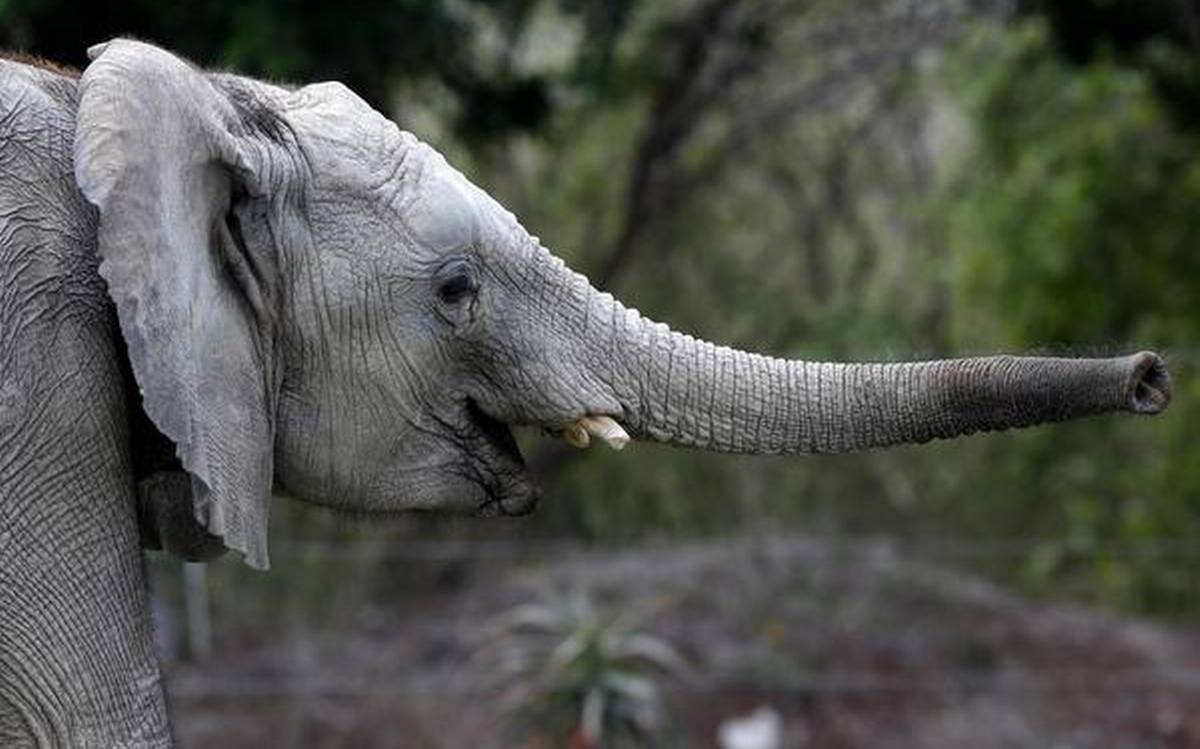Namibia has put 170 “high value” wild elephants up for sale due to drought and an increase in elephant numbers.
As per an advertisement carried by the state-owned daily Era newspaper of Namibia, the Namibian government has announced to put “170 high value wild elephants” up for sale due to drought and increased human-wildlife conflict brought by illegal poaching. Drought and human-wildlife conflict are forcing Namibia to auction its high value elephants.
The southern African country’s Environmental Ministry in their advertisement said, “An increase in incidents of human-elephant conflict motivated the sale of the large mammal that is at the risk of extinction due to poaching and ecological factors.”
Through this announcement of auctioning 170 high value elephants, Namibia is trying to create a balance between protecting the country’s high-value species like elephants and rhinos, while at the same time, they also want to manage the danger these animals pose when they encroach on areas of human habitation.
Requirements for the sale:
According to the reports, the Namibian government announced that it would auction the animals to anyone in the country or abroad who could meet the strict criteria, which include quarantine facilities and a game-proof fence certificate for the property where the elephants will be kept.
The announcement also clearly mentioned that the foreign buyers will also have to provide a proof that conservation authorities in their countries will permit the buyer to export elephants to their countries. Moreover, the buyers must also be able to meet both the exporting and importing requirements by the Convention on International Trade of Endangered Species for the trade to be authorised.
The advertisement of the auction also stated that all the bids for the elephants should be left in sealed envelopes at the Ministry of the Environment by January 29, 2021.
The Namibian Elephants:
The South African country, Namibia, is known for its over 600 desert-adapted elephants that live in Damaraland and the Kunene Region. The rocky, gravel plains of Namibia’s northern Kunene region seem an unlikely place to find elephants. Yet around 600 of Africa’s most unique elephants make their home here.
These deserts elephants are world-famous for coping in their hostile environment. But it’s important to remember the fact that these are not the only elephants that occur in Namibia. African elephants are found in most of the country’s national parks, with Etosha National Park that alone houses 2,500 elephants.
Based on the figures released by the government, it has been reported that Namibia’s preservation drive has seen a jump in the country’s elephant population from around 7,500 in 1995 to 24,000 in 2019. This conservation drive of wildlife in Namibia has also gained international support over the past few years.
But last year, Namibia said that it is considering to withdraw from the rules that govern the global trade in endangered species. This was after countries voted during a CITES meeting to reject proposals to relax restrictions on hunting and exporting Namibia’s white rhinos. The decision was taken because Namibia wanted to allow more trophy hunting and the export of live animals, arguing that the funds that will be raised would help the country to protect its wildlife species.
This is not the first time:
This is not the first time Namibia is auctioning its animals, including elephants. Last year in 2019, the country authorised the sale of at least 1,000 wild animals that were at the risk of dying of starvation as pastures in the country’s parks dried up. The animals that were up for the sale included elephants, buffaloes, giraffes, and impala. The was also meant to generate $1.1 million for the conservation of wildlife present in the country.
The auction was majorly done majorly due to diminishing resources after Namibia suffered from a deadly drought in 2019.
Human-wildlife conflict:
The human-wildlife conflict in Namibia has worsened in the past several decades as the country has seen a massive rise in the population of elephants and other animals. The sale of 170 high value elephants in Namibia is motivated because of the increase in incidents of human-elephant conflict. As per the elephant population report by the Namibian government, the high increase in the number of elephants was impacting human habitations.
Illegal poaching of elephants in Namibia is also one of the major reasons behind the South African government’s decision to auction 170 elephants that are of high value who are a part of the country’s great heritage.

